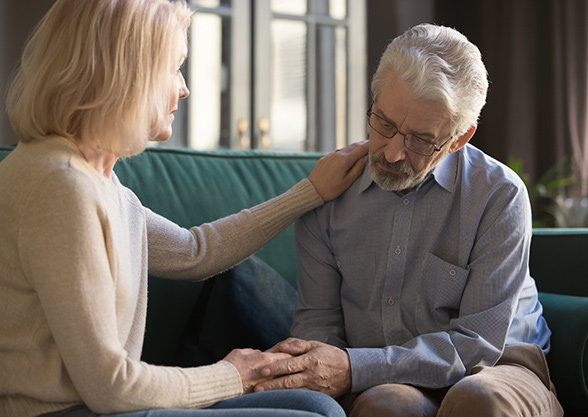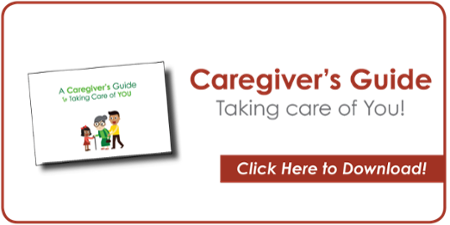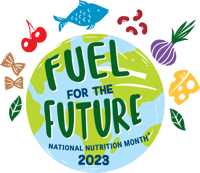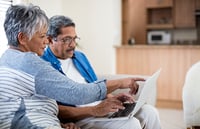
The COVID-19 pandemic is causing anxiety and worry to millions around the world. Caregivers and those living with older adults may be dealing with those who are experiencing extra worry and stress.
Following the guidelines recommended by the CDC and your local authorities will help to keep you and your loved ones feel safe. Focusing on facts, not myths, helps to keep things in perspective.Here are some things you can do to help an older adult without leaving the house:
- Listen with empathy - It’s not always easy when you are managing your fears, work, and other responsibilities. Listen without interruption and let them speak their mind. A sympathetic nod, along with active listening, can go a long way in helping to alleviate anxiety and letting them know you care.
- Maintain a Routine – It is tempting to slack on schedules now, but it is more important than ever. Keep meal times, sleep time, and regular activities on schedule. Everyone must get adequate rest to help to manage stressful situations.
- Encourage Activity – Even though the senior centers and recreational venues are closed, help them to get some fresh air every day. Smelling the outdoor air and seeing nature can do wonders to boost their spirit – and yours! Board games, checkers, and puzzles are great ways to stimulate brain activity and to help them feel engaged. Word games and charades are fun, and don’t be surprised if they win!
- Communicate – Help them to navigate technology so they can chat with friends and family. Nothing brings a smile faster than a conversation with a grandchild or other family member. Sharing the small things of everyday life is essential to maintain meaningful connections.
- Remind Them of Healthy Eating – Using high-fat and salty foods for comfort are only a temporary fix and leads to feeling worse later. Healthy eating for older adults doesn’t have to be complicated. Be sure to include whole grains and low-fat or fat-free dairy, fruits, vegetables, lean meat, poultry, beans, and eggs. Several studies state that malnutrition increases the risk of falls in the elderly. One particular study found that higher dietary protein intakes reduce the odds of a fall.
- Be Sure They Stay Hydrated – Don’t forget to keep a glass of water nearby! Dehydration is one of the most frequent reasons for hospitalization for those over the age of 65. Medications also play a role as diabetes, high blood pressure, and heart disease can result in drugs that dehydrate our bodies to take effect.
- Plan for Better Days – Eventually, older adults will be able to return to many of their favorite activities. It helps to foster positivity to have something to look forward to, which is good for mental health. Make a list of some of the things you are both eager to resume and compare lists!
Now, more than ever, it may be difficult for older adults to grocery shop and to prepare meals. Keeping seniors nourished is vital to maintaining their health. You also may have a family member who has limited access to food. Visit BenefitsCheckup.org to view available resources in your area.
Through their health plans, older adults may be eligible for home-delivered meals after a hospitalization, or if they have a chronic illness. Some Medicare Advantage plans are supplying emergency meals to their members. Be sure to contact their Medicare Advantage plan to see if they qualify.
Remember, it's important to take care of yourself! Download our Caregiver's Guide for tips to help you to cope during this time.











